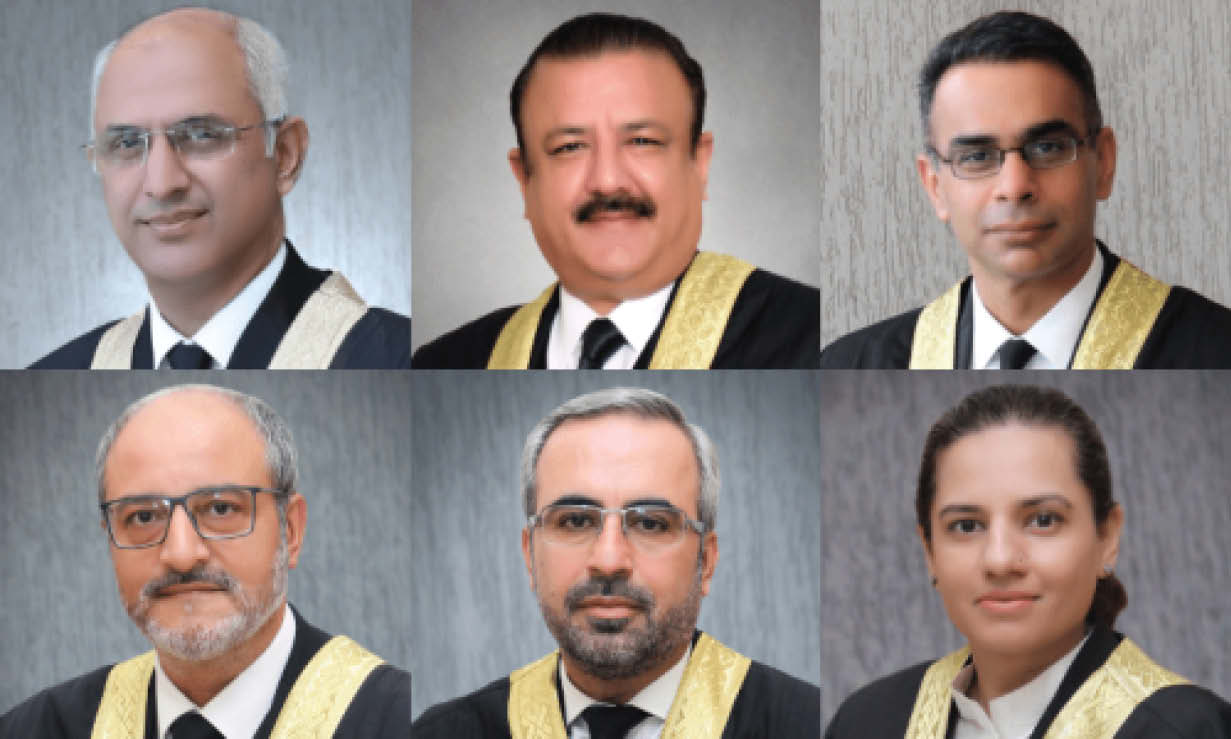In a significant move, the Supreme Court of Pakistan has taken up a suo motu case concerning allegations of interference in judicial affairs. The case revolves around claims made by six Islamabad High Court (IHC) judges regarding attempts to influence judicial matters by the country’s security apparatus.
Chaired by Chief Justice of Pakistan (CJP) Qazi Faez Isa, the six-member bench, which includes justices Mansoor Ali Shah, Jamal Khan Mandokhail, Athar Minallah, Musarrat Hilali, and Naeem Akhtar Afghan, has commenced hearings on the matter. The proceedings are being broadcasted live on the SC’s website and YouTube channel.
The controversy came to light in late March when six IHC judges penned a letter to the Supreme Judicial Council (SJC), detailing instances of pressure tactics allegedly employed to coerce judges. The letter, signed by judges Mohsin Akhtar Kayani, Tariq Mehmood Jahangiri, Babar Sattar, Sardar Ejaz Ishaq Khan, Arbab Muhammad Tahir, and Saman Rafat Imtiaz, highlighted incidents such as the abduction and torture of relatives of judges and surveillance inside their homes.
Following the revelation, calls for a thorough investigation intensified, leading to the summoning of a full-court meeting of SC judges by CJP Isa. Subsequently, a proposal for an inquiry commission was put forth, which was approved by the federal cabinet. However, former CJP Tassaduq Hussain Jillani, appointed to lead the inquiry commission, recused himself from the role, prompting the SC to take suo motu notice of the matter.
During the ongoing hearings, Justice Mansoor Ali Shah emphasized the importance of empowering the judiciary in the face of external pressures. He stressed the need for a clear firewall to safeguard against excesses and ensure judicial independence.
The contents of the letter by the IHC judges shed light on alarming instances of interference, including attempts to pressure judges through intimidation tactics and surveillance. The judges called for a judicial convention to address the issue comprehensively and determine appropriate courses of action.
As the hearings progress, the SC aims to delve deeper into the allegations and chart a path forward to uphold the integrity and independence of the judiciary. The case holds significant implications for the future of judicial governance in Pakistan and the protection of judges from external influences.
